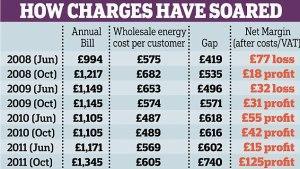 Last week I blogged about the case of Mark and Helen Mullins (1,000 suicides: victims of a failing economic strategy) who committed suicide together after being ground down by poverty including making 12 mile round trips on foot to collect vegetables from a soup kitchen to avoid starvation.
Last week I blogged about the case of Mark and Helen Mullins (1,000 suicides: victims of a failing economic strategy) who committed suicide together after being ground down by poverty including making 12 mile round trips on foot to collect vegetables from a soup kitchen to avoid starvation.
Today the Daily Mirror reports that some desperate families are driven by hunger to trudge 20 miles on foot to get to food banks. It’s a heartbreaking insight into how increasing numbers of people in Britain are being crushed by austerity, rising food and fuel prices, rising rents and shrinking welfare benefits.
Also today the Chancellor George Osborne gave his autumn statement announcing that biting austerity cuts will continue until 2018. That signals a decade-long downturn, far longer than the Great Depression of the 1930′s, and for many there is no end in sight.
A further one percent cut in benefits has to be measured against the cost of living. Retail inflation is 3.7 percent, food inflation is eleven percent and the average heating bills have climbed by over £300 since 2008 along with energy companies raking in record profits.

Rising fuel bills
The Telegraph reports a further rise of up to £65 before Christmas which will leave many of the poorest in society, including pensioners, unable to heat their homes during the cold winter.
Official unemployment stands at 2.6 million and a new wave of austerity cuts in the public sector – particularly in local government – is set to throw many more thousands on the dole – while the TUC estimate the ‘real’ level of unemployment is over six million.
Add to the mix a 25 percent rise in homelessness and the rise in soup kitchens and food banks and it feels like we’re not so much back in the 1980′s as the 1880′s.
And all for what? All the deficit reduction targets Osborne set for himself are being missed and an increasing number of economists, including the IMF, believe that austerity is actually making the economic downturn worse.
The country is crying out for stimulus, public investment, not more cuts. This failed economic strategy is going nowhere fast and may even be making our deficit increase. We clearly need a Plan B to avoid permanent recession yet the chancellor’s autumn statement made clear that he is intent on continuing the pain with no gain.
As always, under the Tories, it is the poor who suffer most while the rich enjoy a top-rate tax cut, and the richest of the lot – companies like Starbucks, Amazon and Google – are getting away with paying no tax at all.

Blind alley: George Osborne
The lessons of Japan, who failed to recover from a recession in the 1990′s and ‘lost’ the following decade as a result of economic policy decisions, must be heeded. Driving the poor into even deeper abject poverty while squeezing the state ’til the pips squeak, protecting the super-rich and failing to stimulate the economy is a recipe for long term stagnation.
We hardly needed the autumn statement to confirm the failure of the current economic strategy, we just have to look at the real stories about ordinary people brought to their knees in a Britain careering headlong back to Dickensian times. The Daily Mirror reports:
Desperate families are so strapped for cash they are trudging 20 miles to get their hands on free food.
It emerged yesterday that needy people are enduring five-hour round trips to food banks as they can’t afford train or bus fares.
It comes as Chancellor George Osborne today introduces cuts to the benefits system that will leave some of the poorest families £2,000-a-year worse off.
The lengths people are being forced to go to just to get hold of basics such as soup and baked beans were revealed yesterday by volunteers at a charity food bank.
Staff at the centre in Barrow, Cumbria, told of their shock when they realised a woman in her late-50s had walked almost 10 miles in heavy rain from Ulverston to collect a handout.
The woman, who was too hard-up to pay the £6.70 round-trip bus fare, then made her way back home on foot, weighed down by carrier bags of essentials.
Food bank treasurer Dot Jackson said: “She arrived looking like a drowned rat. It was when we had heavy storms.
“We filled her bags with food, but we felt useless because we couldn’t pay for her transport home. If they can’t afford food, they certainly can’t afford transport.
“Even if they have cars, they can’t afford to run them and they don’t want to tell friends or relatives because they feel ashamed.
“They walk here whatever the weather, then they have to walk home with tins and other heavy stuff.
“A single person will probably get three carrier bags full of food.
“And we have families of three, four, five, six children – imagine how many carrier bags that takes. We tell people to bring a pram or trolley.
“These people are totally desperate. Some are so hard up they have only a kettle – no cooker or microwave – so we can only give them packet soups and food that really isn’t very nutritious.”
The food bank has been used by 248 adults and 55 children in the past four months. And it’s not just the jobless who are being forced to ask for handouts.
Rev Andy Batchelor, of Ulverston Parish Church, said: “The problem of people living with poverty goes beyond those who are unemployed and I think it is very sad.
“There are people who have jobs that don’t bring in enough money to support the family, which is disturbing.
“There have been several occasions when people have walked from here to Barrow. It’s a sign of their desperation that they will walk that far to get food.”
Disability charities in Cumbria say they often have to refer people for food handouts when benefits have not come through because of changes brought in by the Government.
The centre in Barrow is one of about 280 food banks across Britain overseen by charity the Trussell Trust.
In an FT article headlined Britain does not have to accept stagnation, respected writer Martin Wolf says: “The UK does not have to accept stagnation. It should explore its options, not pretend it has none.” He argues that Britain should not only reassess its’ fiscal policy but take advantage of historically low rates of borrowing to boost investment.
There is simply no justification for suffering a purdah which is threatening to leave lasting scars on the economy and damage generations of people who make up the economy. Why leave a legacy of despair, of education-leavers who head down the wrong road because there are no opportunities? Of families torn apart by poverty and debt. Rising crime, health problems and mental illness caused by stress.
It is grossly unjust, unacceptable and intolerable. One cannot be a progressive person in politics and not speak up loudly and clearly against the heavy human cost of the current economic strategy.
With mounting evidence from independent experts, and today from the Chancellor himself, that all this pain is failing miserably to achieve its’ aims, the clamour for a change in direction will surely grow. Another two years of this is more than many can bear. Another six years… unthinkable.
By Lester Holloway @brolezholloway
